
Roundtable
Advertisement
The panel concludes with a candid discussion about the most urgent changes that could improve cancer care today.
The panel explores the importance of introducing palliative care discussions earlier in the treatment journey.
The panel explores the overlooked burden of financial toxicity and proactively raising the topic with patients.
The panel explores how clinicians can build trust with patients from diverse backgrounds and ensure care is patient-centered.
The panel explores how clinicians can introduce clinical trial options while maintaining trust in the face of uncertainty.
The panel explores the emotional weight of a cancer diagnosis and the importance of empathetic communication.
The panel concludes with thoughts on the evolving role of lutetium-177 in metastatic castration-resistant prostate cancer.
The panel explores ARANOTE, ARASENS, and PEACE-1, emphasizing drug tolerability, toxicity trade-offs, and more.
The panel breaks down the growing role of MDT and the evolving use of radiation in oligometastatic disease.
The panel considers the ARANOTE trial of darolutamide, emphasizing its tolerability and broad eligibility criteria.
The panel examines the nuances of selecting triplet vs doublet therapy for patients with high-volume or high-risk disease.
The panel discusses how PSMA PET imaging is changing disease classification and decision-making.
The panel begins with how to explain the difference between hormone-sensitive and castration-resistant to patients.
The panel concludes with a discussion on the early use of PARP inhibitors in patients with DNA repair mutations like BRCA1/2.
The panel delves into how de novo metastases signal more aggressive prostate cancer biology.
The panel weighs the role of next-generation sequencing and emphasizes how SPOP, TP53, and RB1 guide treatment decisions.
The panel considers the evolving management of oligometastatic prostate cancer, highlighting the role of MDT.
The panel reviews treatment options for newly diagnosed mHSPC, comparing data from key doublet trials.
The panel explores scenarios where PSMA PET may not be needed, as well as limitations of conventional imaging in trials.
The panel discusses the evolving role of PSMA PET scans, imaging intervals, and distinguishing HSPC from CRPC.
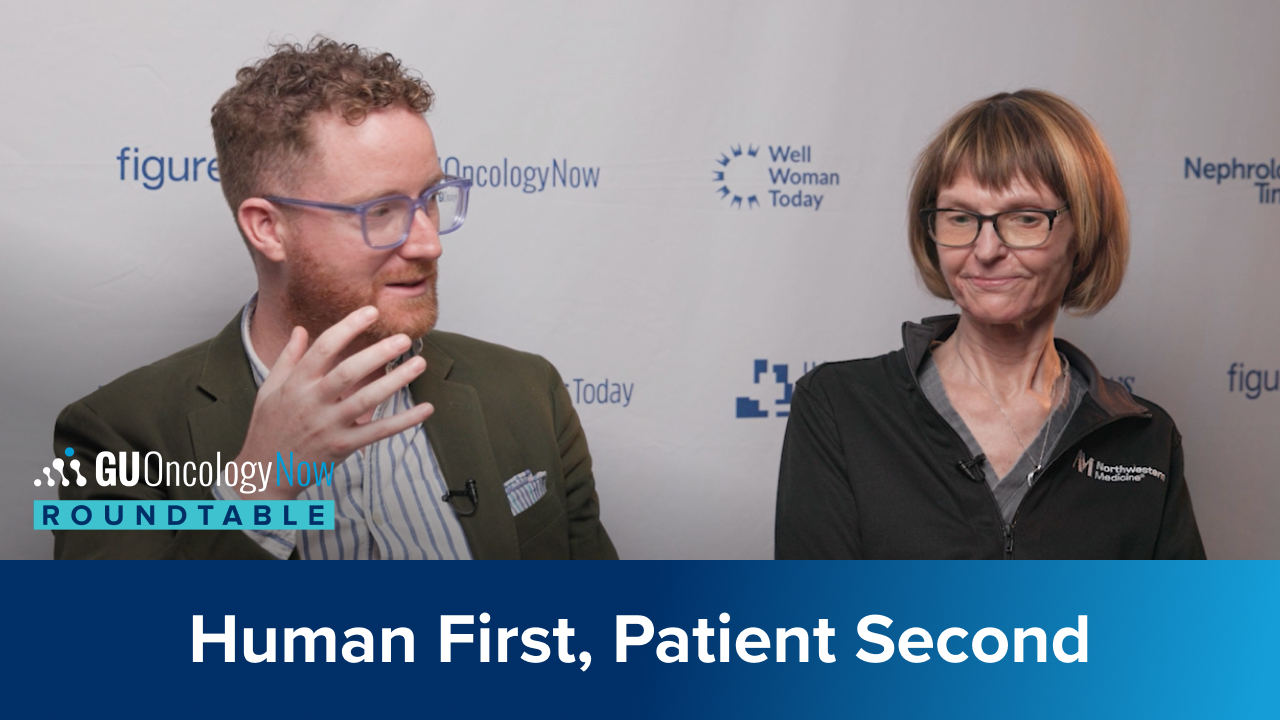
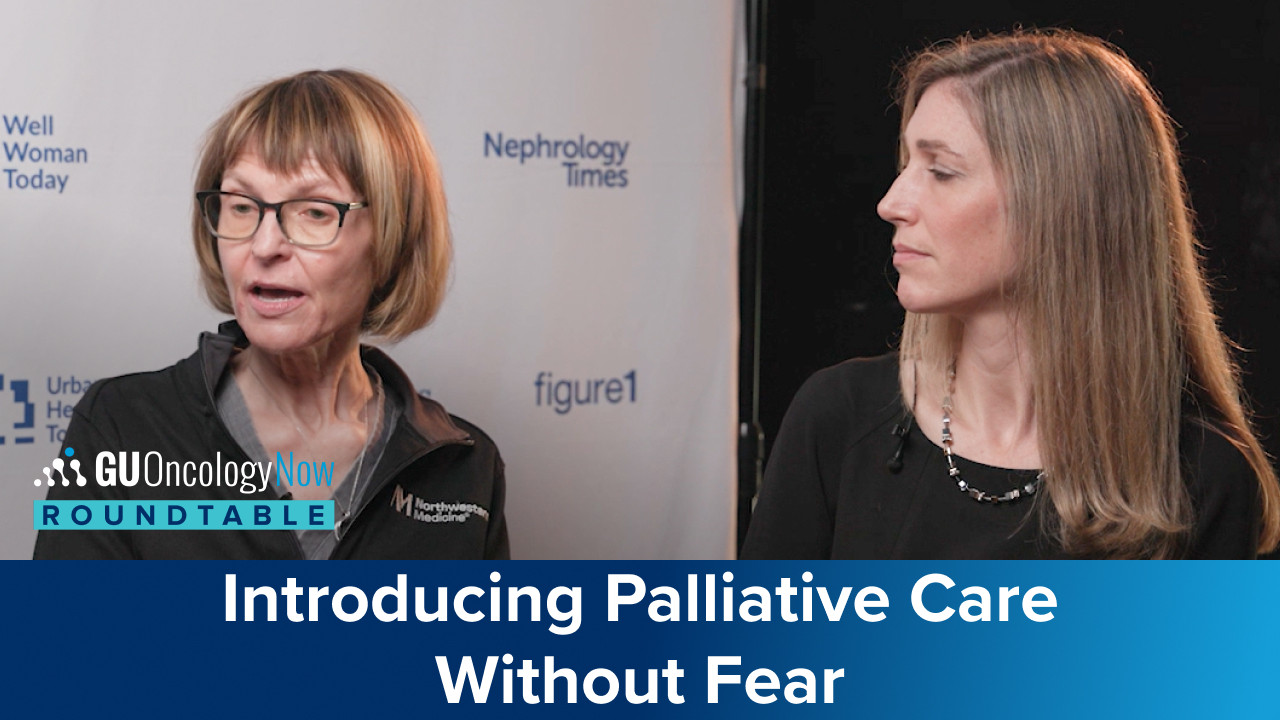
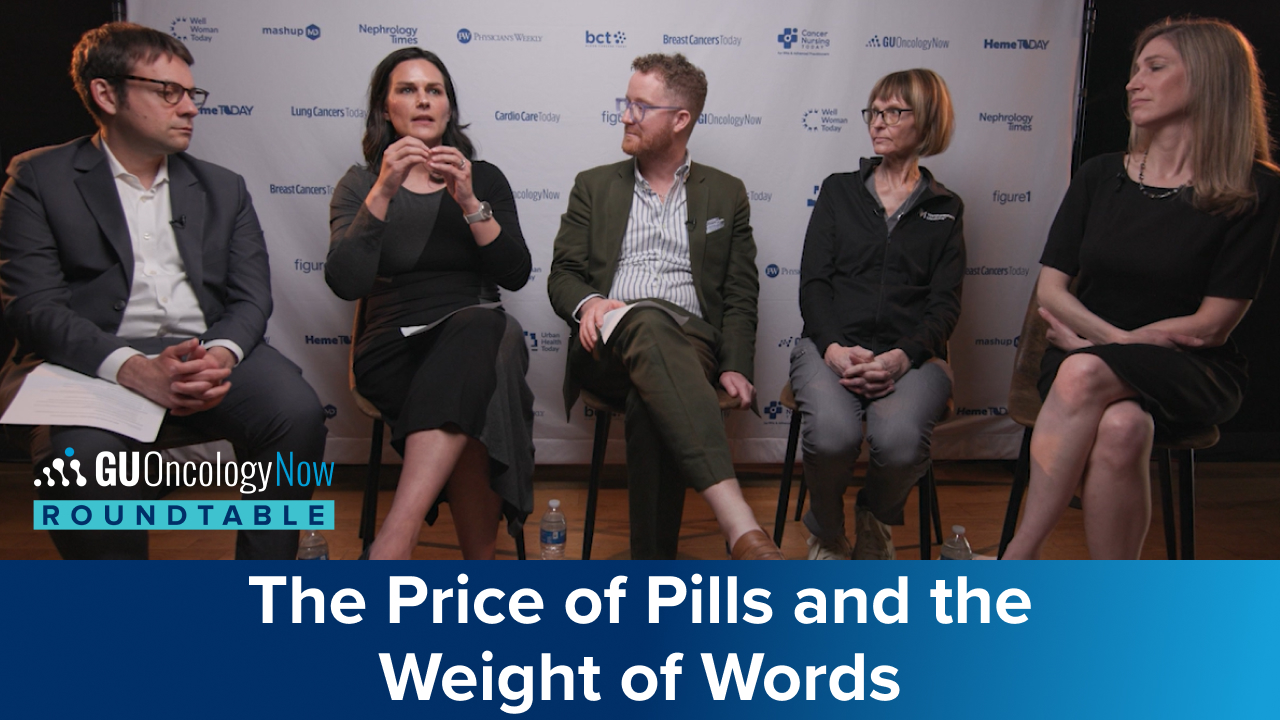
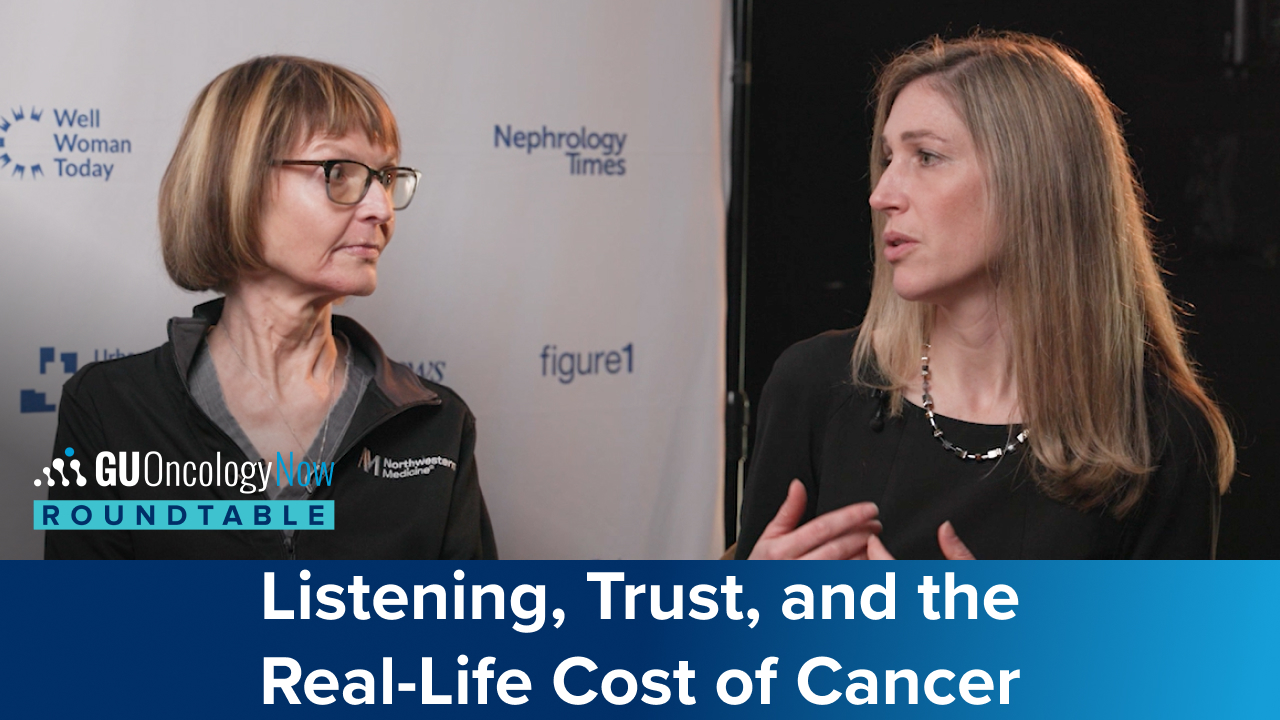
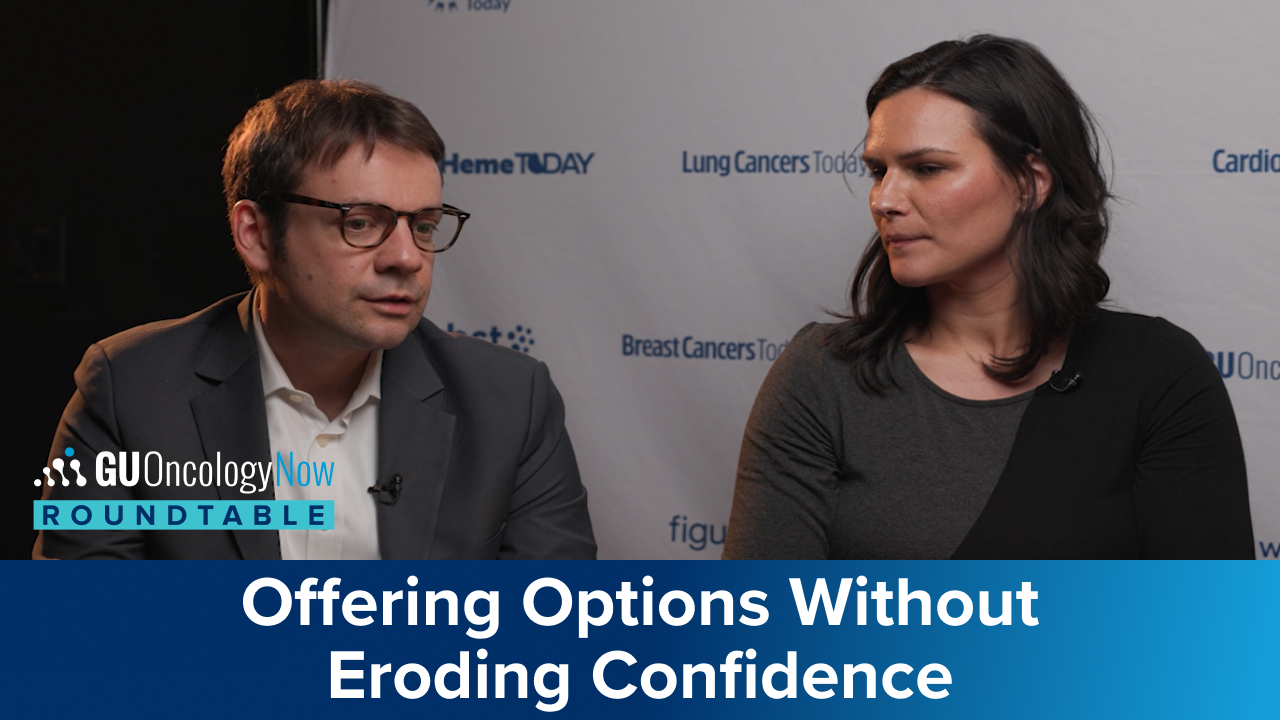
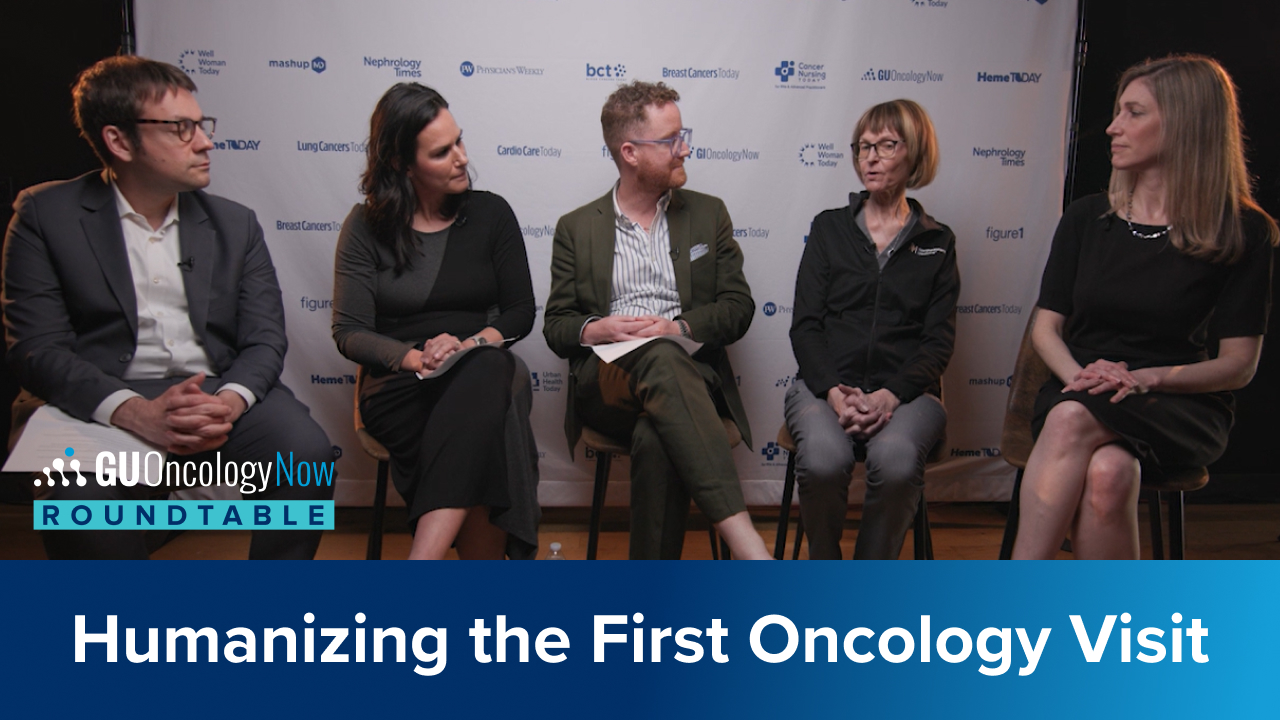
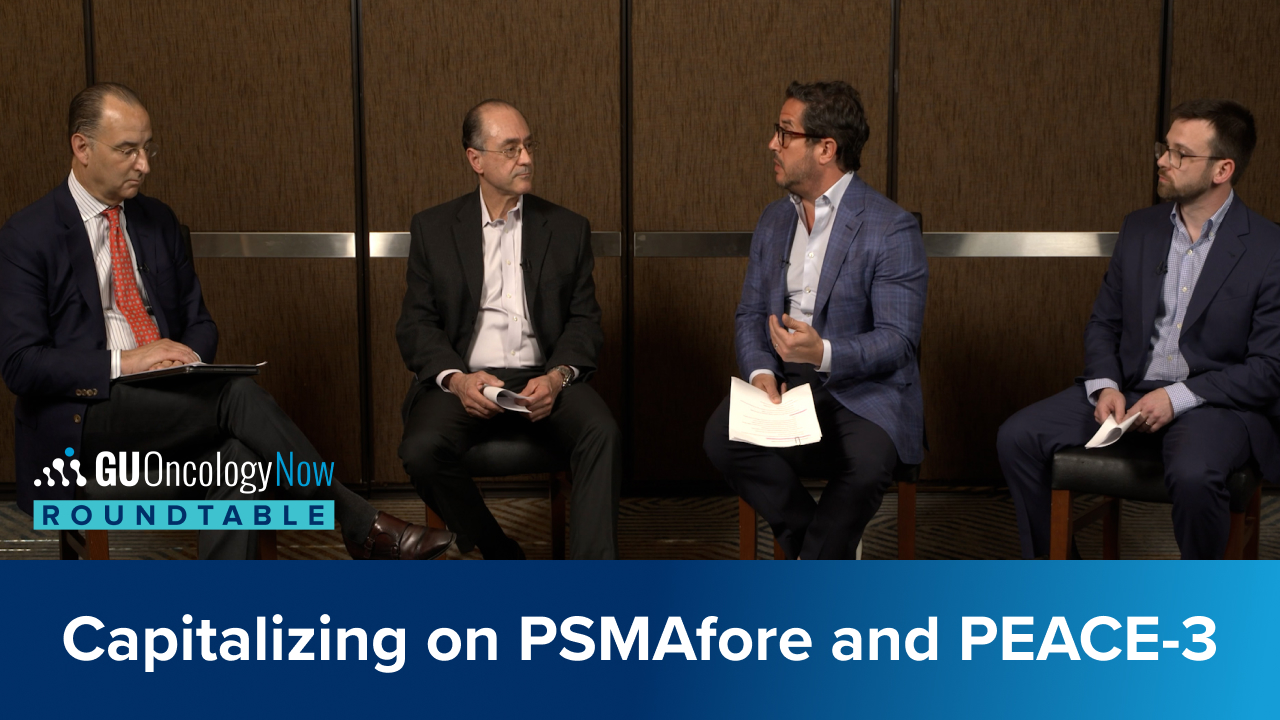
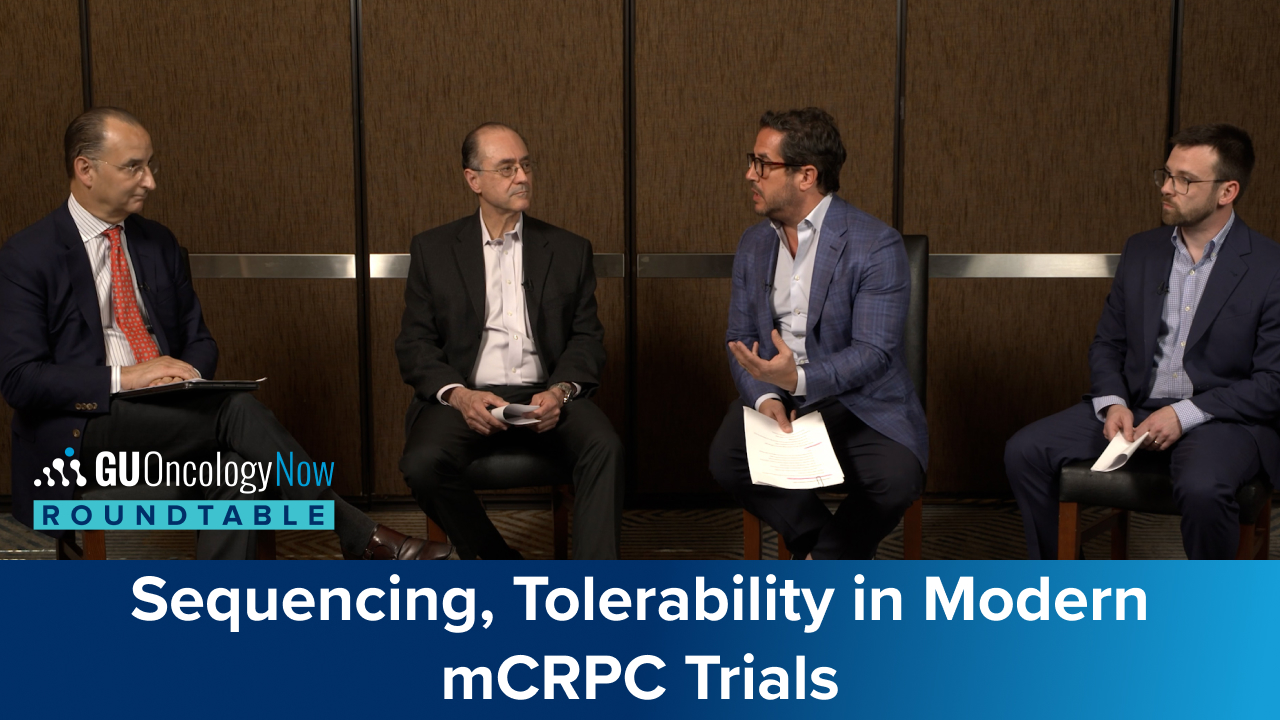
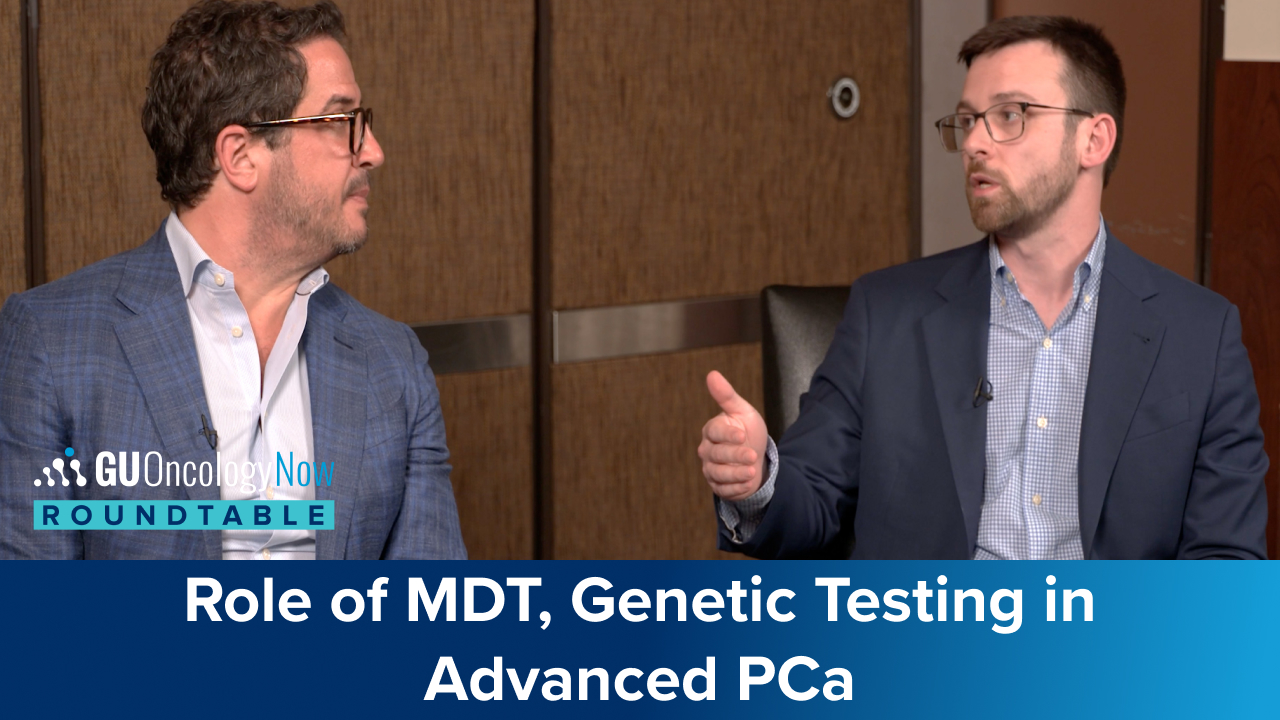
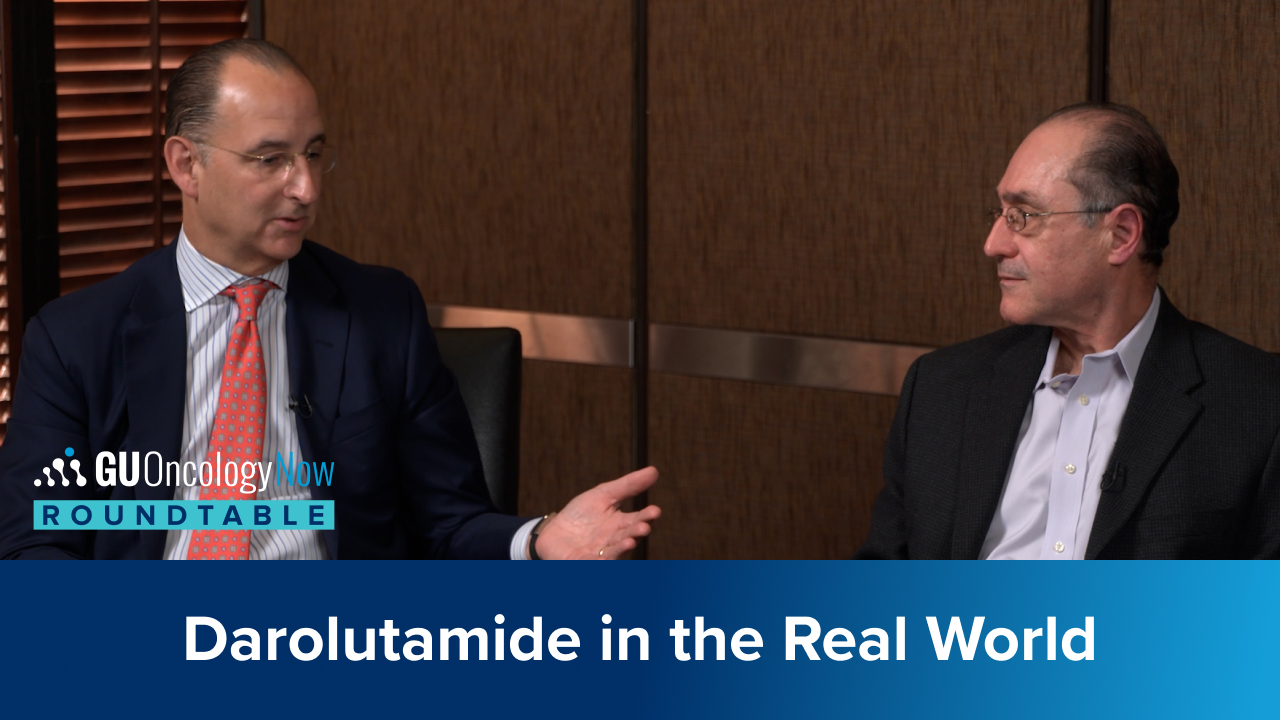
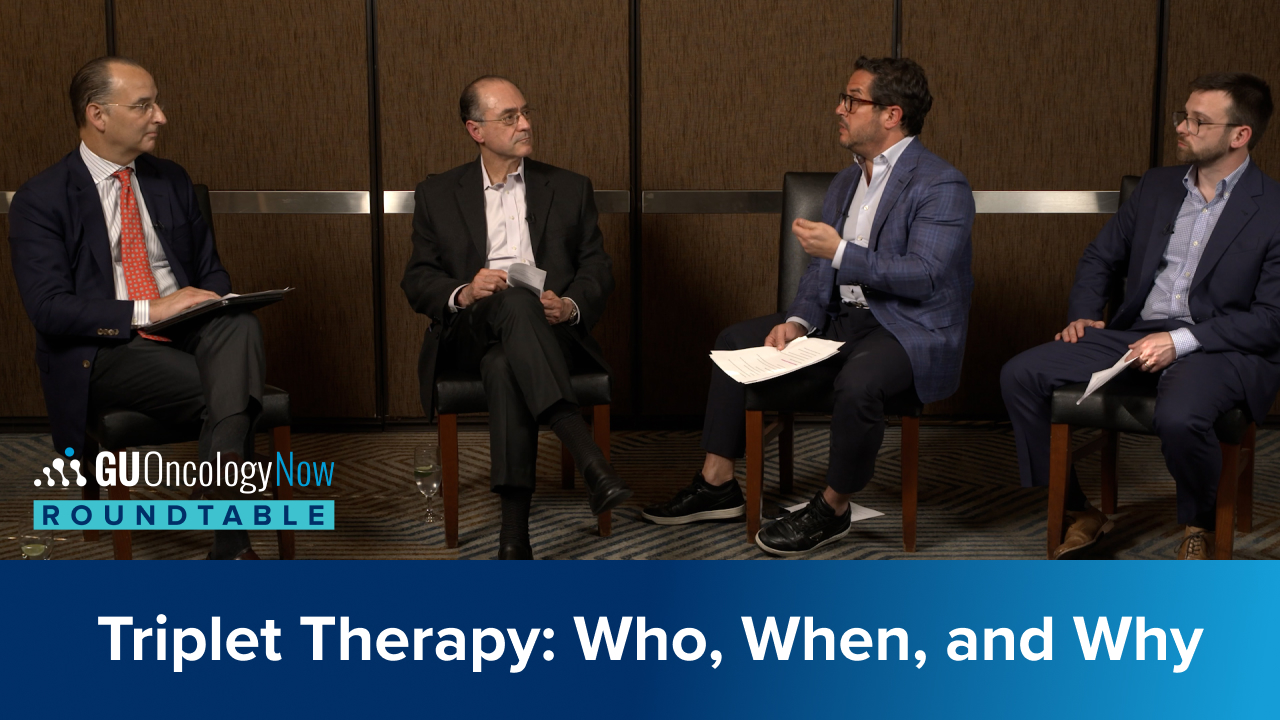
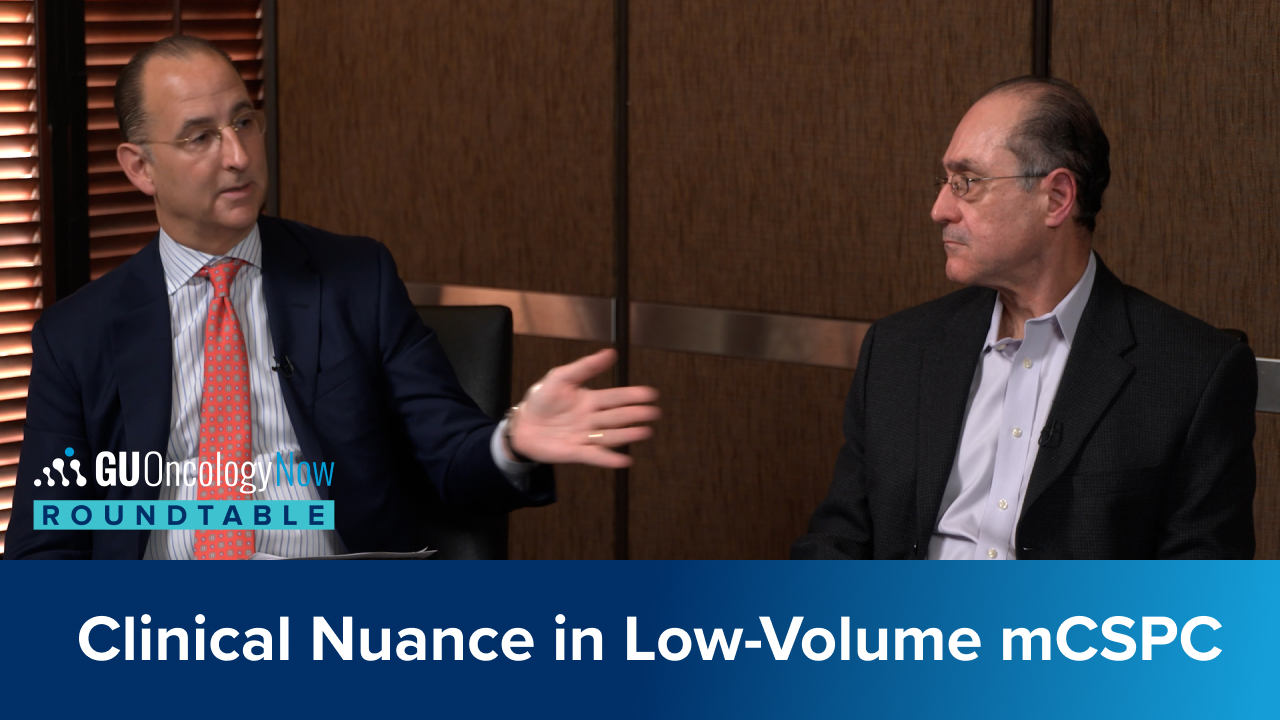
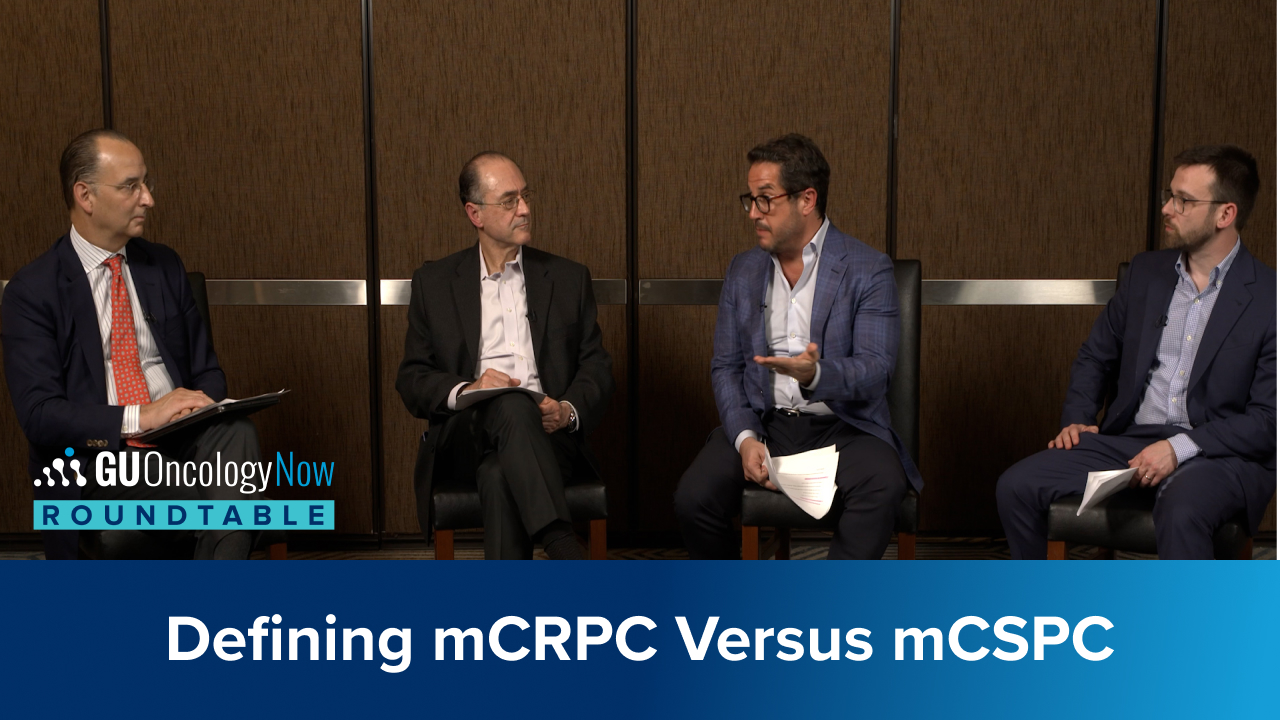
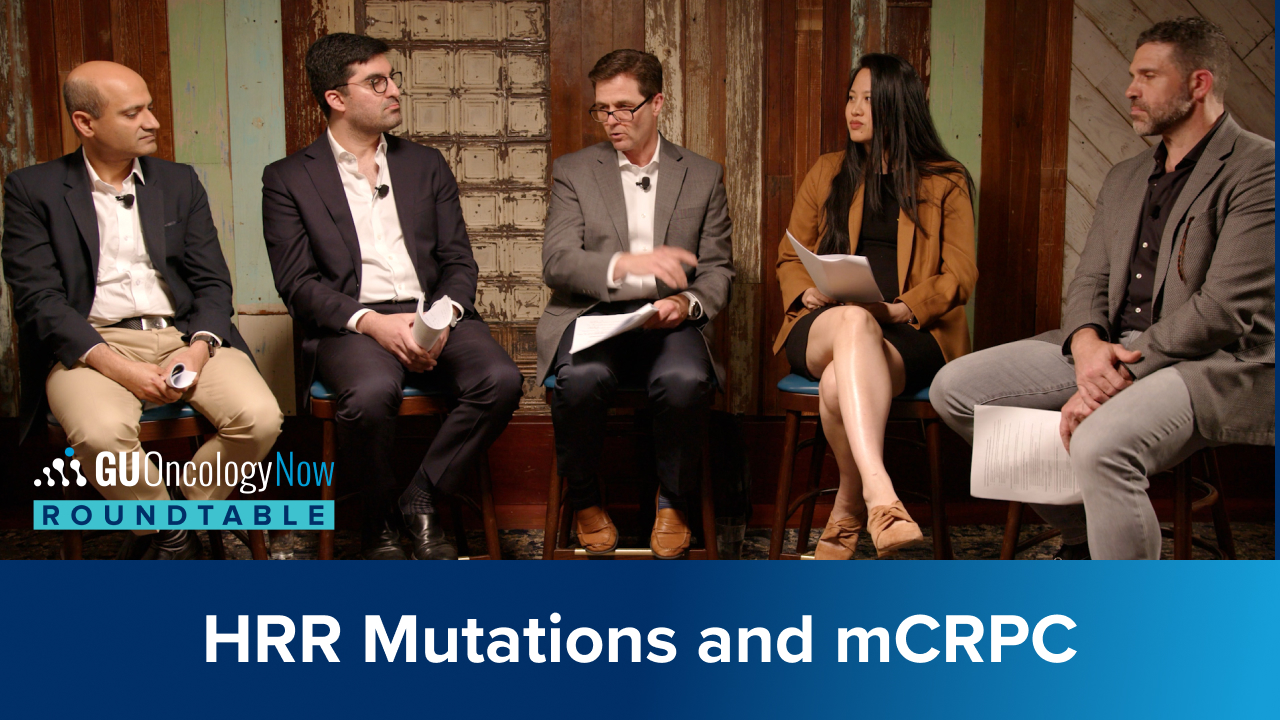
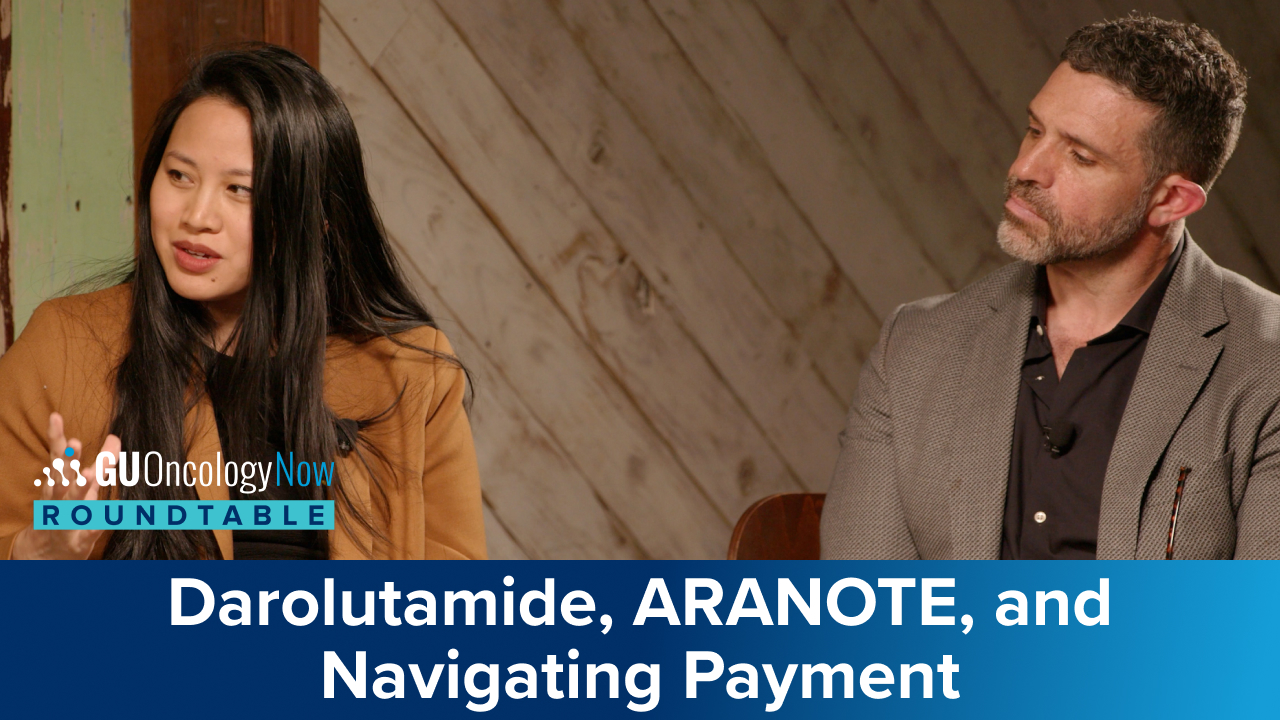
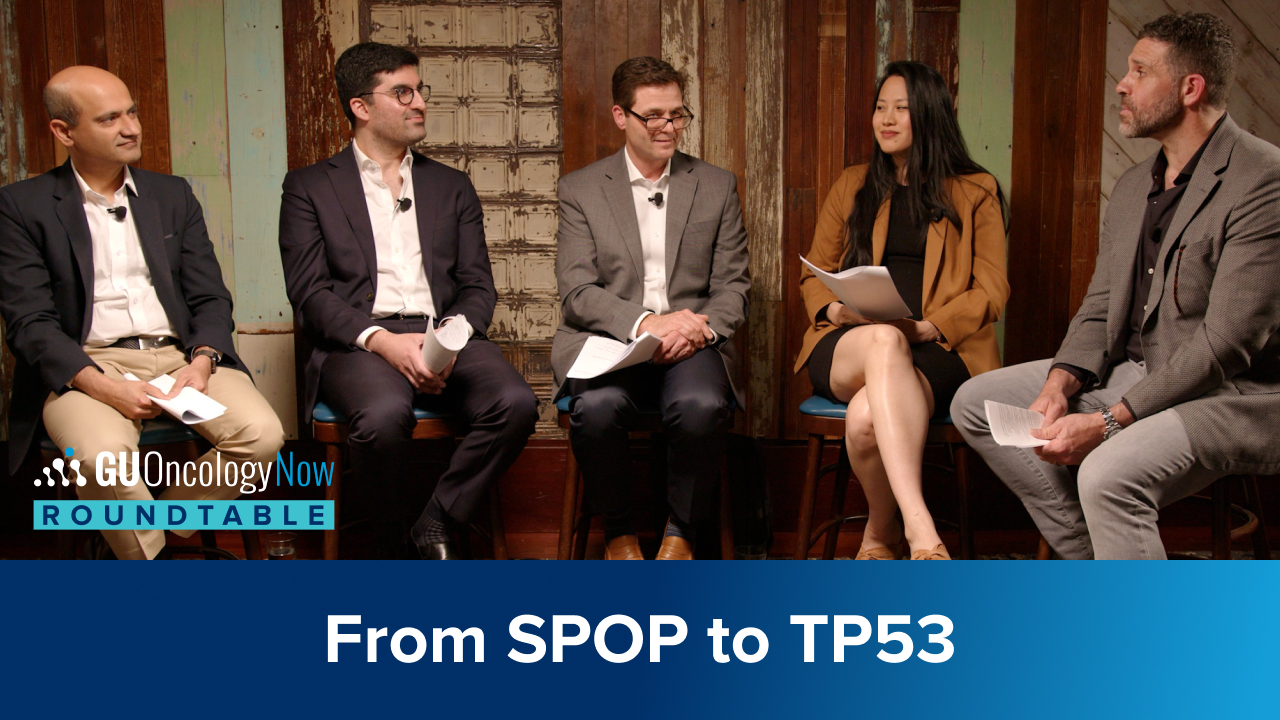
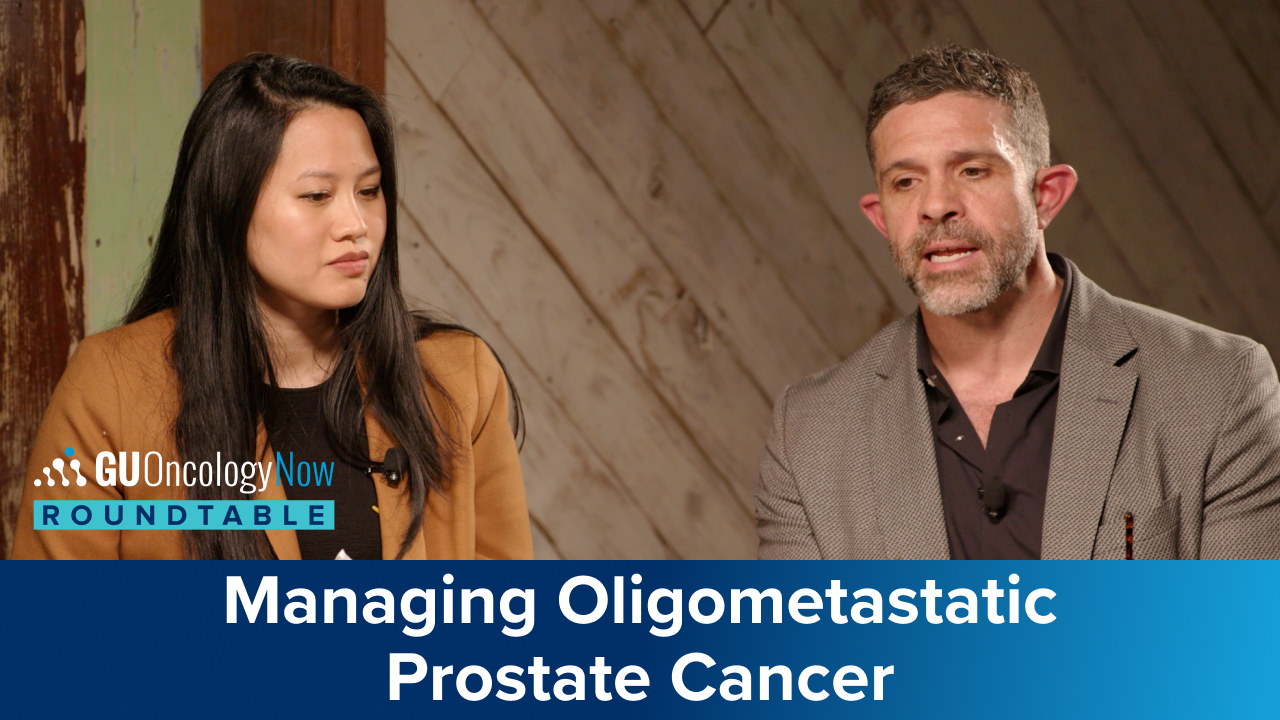
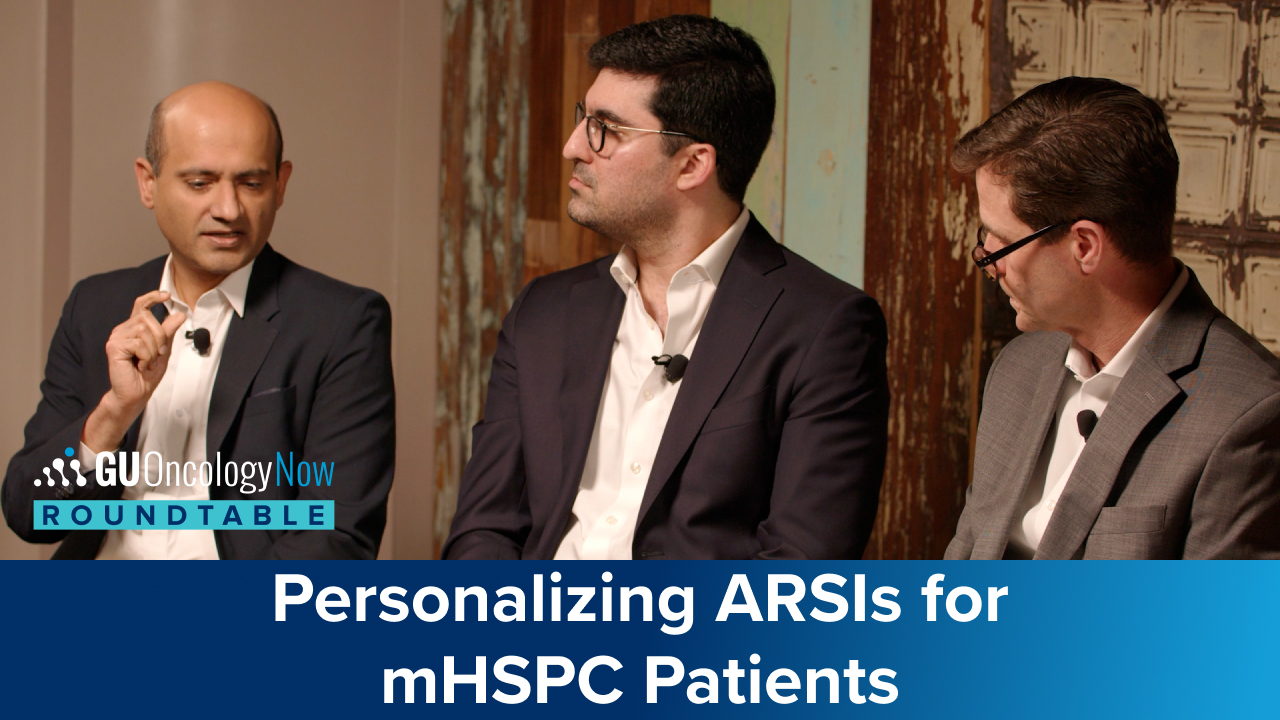
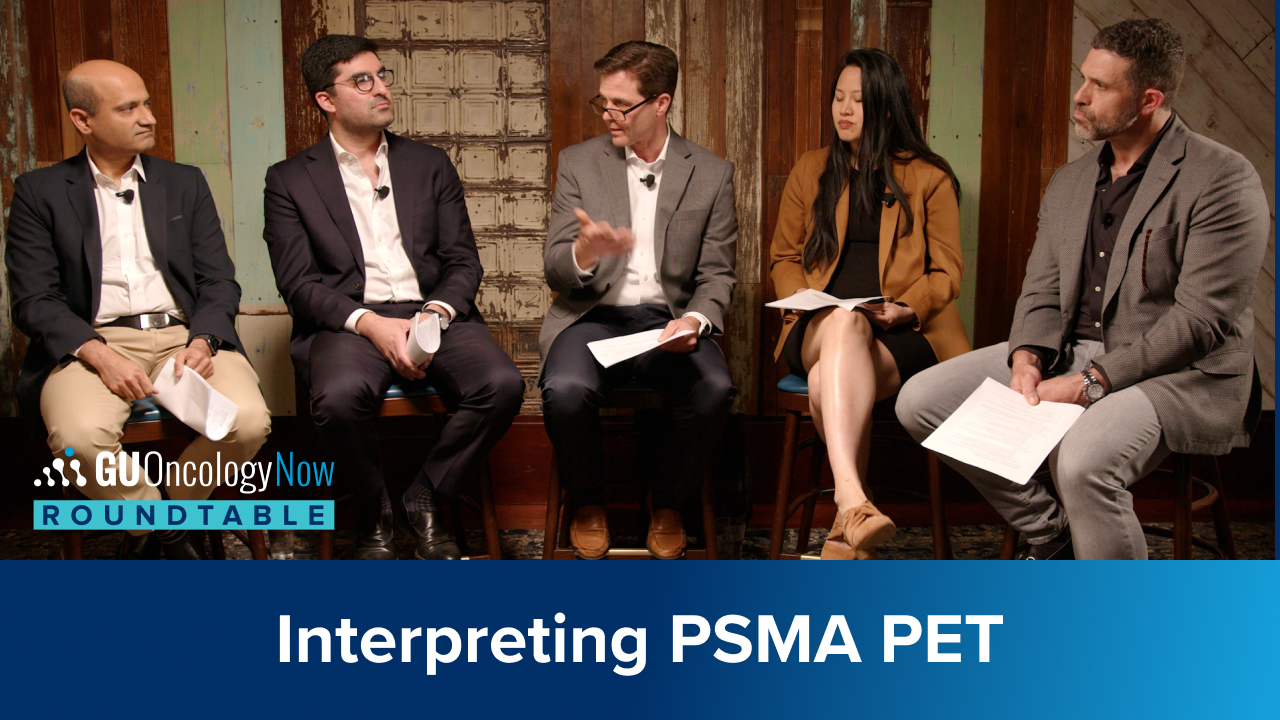
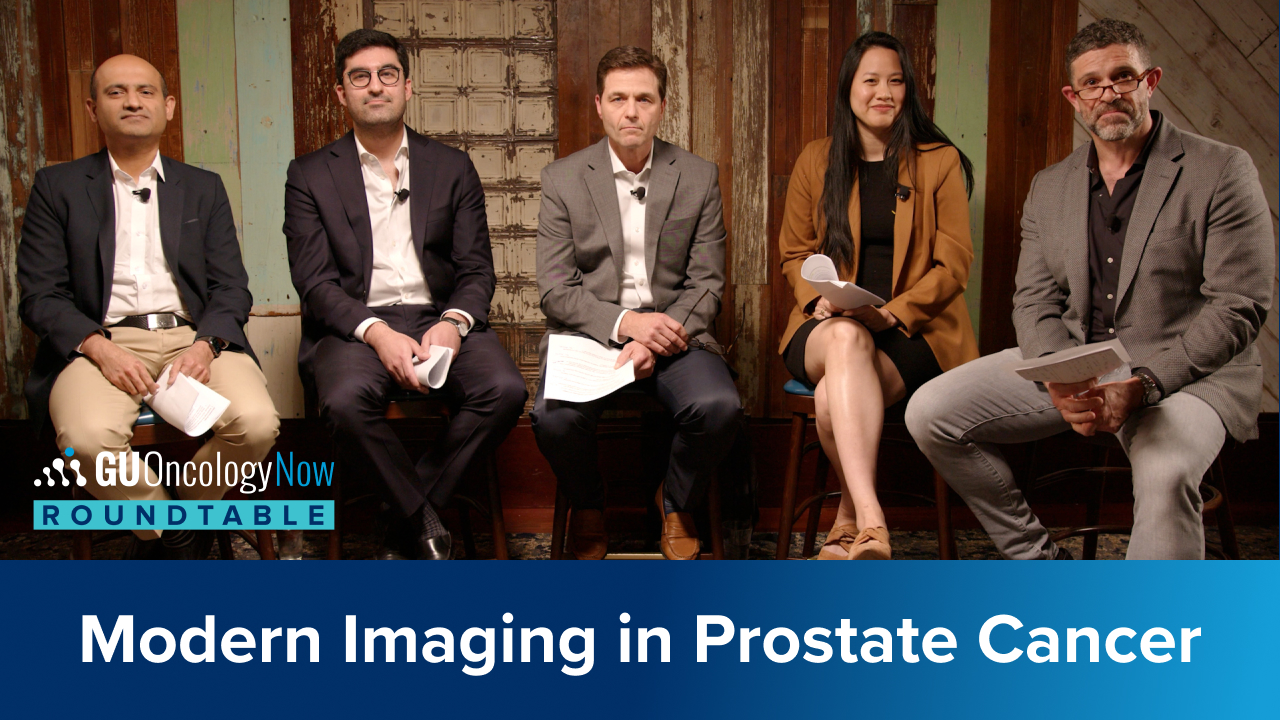

 © 2025 Mashup Media, LLC, a Formedics Property. All Rights Reserved.
© 2025 Mashup Media, LLC, a Formedics Property. All Rights Reserved.